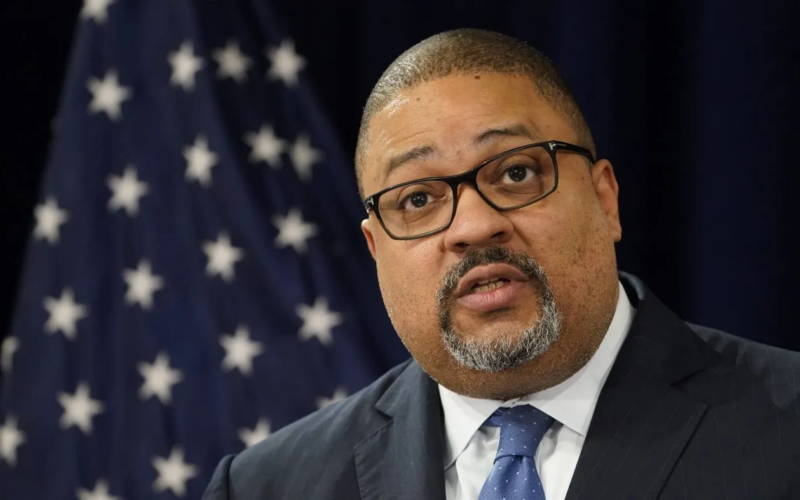Manhattan District Attorney Alvin Bragg announced on Tuesday that he does not oppose former President Donald Trump’s request to delay his sentencing, originally set for July 11, following a recent Supreme Court ruling on presidential immunity. The decision now awaits approval from Judge Juan Merchan.
On Monday, Trump submitted a letter to Judge Merchan asking for permission to vacate the jury’s verdict in the case of New York v. Trump and requesting a postponement of his sentencing. This move comes after the U.S. Supreme Court, in a 6-3 decision, ruled that a former president has substantial immunity for official acts committed while in office. The court’s ruling narrowed the case against Trump and remanded it to the trial court to reassess the indictment brought by special counsel Jack Smith.
In his letter, Trump sought an extension until July 10 to file a motion to overturn the verdict, with the hope of adjourning the sentencing scheduled for the following day.
Responding to Trump’s request, DA Bragg stated, “We are in receipt of defendant’s pre-motion letter dated July 1, 2024, seeking leave to file a motion to set aside the verdict pursuant to CPL § 330.30(1) based upon the Supreme Court’s July 1, 2024 decision in Trump v. United States.” Bragg acknowledged that Trump’s request to file moving papers on July 10 implicitly includes a request to adjourn the sentencing hearing until the motion is resolved.
“Although we believe defendant’s arguments to be without merit, we do not oppose his request for leave to file and his putative request to adjourn sentencing pending determination of his motion,” Bragg wrote. He proposed a deadline of July 24 to file and serve a response to Trump’s motion.
Trump was found guilty last month on all 34 counts of falsifying business records in the first degree, following a six-week trial. He had pleaded not guilty to the charges, which were brought by Bragg’s office last year.
The Supreme Court’s decision in Trump v. United States has significant implications for the case. It affirms substantial immunity for former presidents regarding official acts, prompting Trump to seek a review and possible dismissal of the verdict based on this ruling.
Judge Merchan will now decide whether to grant Trump’s request to file the motion and delay the sentencing. The decision is anticipated ahead of the July 11 sentencing date, which coincides with the lead-up to the Republican National Convention, where Trump is expected to secure the nomination as the 2024 Republican presidential candidate.
The situation underscores ongoing legal and political challenges faced by Trump, as well as the potential impact of the Supreme Court’s ruling on future cases involving presidential immunity.








